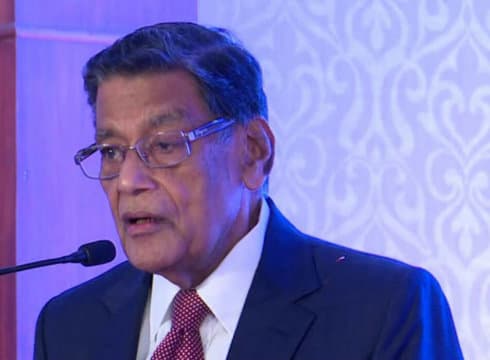KK Venugopal Told The Five-Judge Bench Hearing Petitions Challenging The Aadhaar Act, 2016
Inc42 Daily Brief
Stay Ahead With Daily News & Analysis on India’s Tech & Startup Economy
In the latest development over Aadhaar episode, the central government in India has claimed in the Supreme Court that Aadhaar would prevent bank frauds. The Attorney General (AG) KK Venugopal also said that Aadhaar would aid the government in shutting down telecom connectivity to terrorists.
“Aadhaar will prevent bank frauds,” Attorney General KK Venugopal told a five-judge bench testing the constitutional validity of a host of petitions that have challenged the Aadhaar Act, 2016. “It would prevent the creation of multiple benami accounts,” he explained.
Insinuating the benefits of Aadhaar, the AG suggested that since terrorists often hold multiple SIM cards, Internet connectivity could be cut off for the cell phones belonging to the terrorists.
However, the bench comprising CJI Dipak Misra and Justices AK Sikri, AM Khanwilkar, DY Chandrachud and Ashok Bhushan, has shown their skepticism over his claims.
In reply to the suggestions by KK Venugopal, some of the points the Justices raised were:
- Bank frauds don’t happen because of multiple identities. Banks do due diligence every time they give out loans. Frauds can’t happen unless bank employees are hand in glove.
- Terrorists don’t apply for Aadhaar. They don’t apply for SIMs. They acquire them.
Apart from the data breach and data security issues, the government is also fighting the Aadhar war on the ‘consent’ front.
According to the senior-most law officer of the court, the Aadhaar data pre-dating the 2016 law was valid under the law as it was “voluntarily” ceded. Not only did the officer urged the court to refrain from ruling that the Aadhaar had been collected unconstitutionally and hence must be destroyed but also “that would be an exercise in futility. We will have to re-enrol these people.”
Relentless with his argument, the AG said about the availability of the biometrics of the Aadhaar in the public domain that, “The biometrics are bare minimum. Everything is available about a person in Wikipedia these days”.
The more appalling part of this entire argument was when the AG, at one point, insisted that the miniscule of the people opposed to Aadhaar cannot insist that their right to privacy weigh more than the right to food and life of the teeming poor — estimated at over 400 Mn people.
The Case In Point
In January, the Aadhaar system was hacked by a self-proclaimed French cybersecurity expert who goes by the alias Elliot Alderson. Soon after, a leakage was reported after an unidentified group on WhatsApp shared links containing the login and the password details which enabled access to 1 Bn Indian citizens.
Also, a harsh rebuttal to the UIDAI’s claims of the Aadhaar security surfaced when a report claimed that “a data leak on a system run by a state-owned utility company Indane allowed anyone to download private information on all Aadhaar holders, exposing their names, their unique 12-digit identity numbers, and information about services they are connected to, such as their bank details and other private information”.
In unity, the essence from the bench was “Aadhaar is not a catch-all for all frauds”.
Conceding to the rebuttal by the Supreme Court, the central government has already informed the Supreme Court that it will draft the data protection bill to support the right of privacy. The ongoing arguments at the apex court is interesting and vital for any ruling on the Aadhaar case and hopefully, India will make up its mind to protect its data and aim at preventing a Facebook faux pas in India post data leakages and breaches. This is of supreme importance to India especially since it’s the largest democracy in the world.
{{#name}}{{name}}{{/name}}{{^name}}-{{/name}}
{{#description}}{{description}}...{{/description}}{{^description}}-{{/description}}
Note: We at Inc42 take our ethics very seriously. More information about it can be found here.


